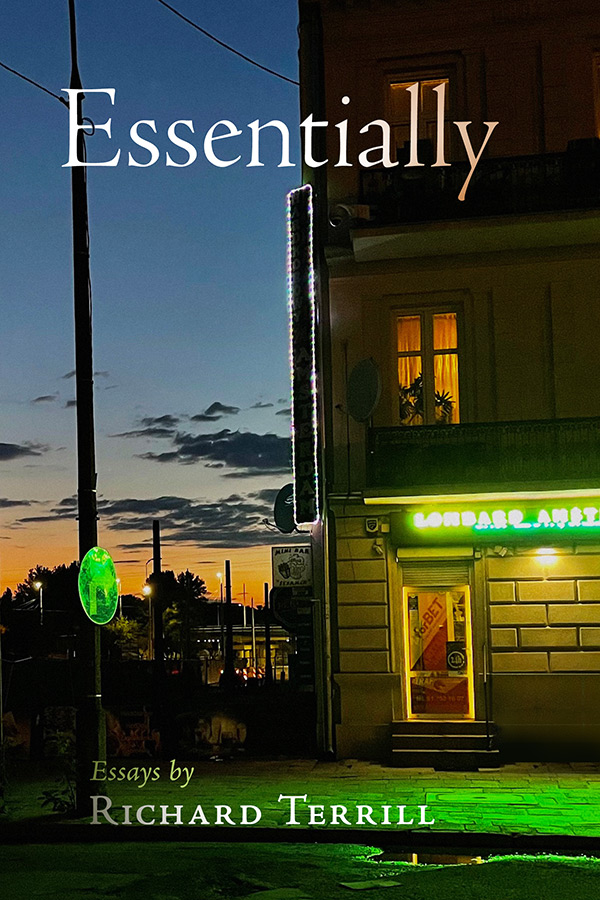
Reviewed by Grace Kranz
In his new book of essays, “Essentially”, Richard Terrill writes “life does not progress as much as it accretes moments.” Written as if confiding in a friend, Terrill’s essays explore moments he deems to be essential. From the meditative nature of trout fishing to the hilariously complex nature of suburban neighborhood relations, Terrill finds beauty in often overlooked moments of simplicity.
Hailing from Wisconsin and currently residing in Minneapolis, Terrill is a Professor Emeritus at Minnesota State University, Mankato where he taught in the MFA program in Creative Writing and in Film (his essay “Section One, Tuesday 6-9:35 P.M., Fall Semester, 1996” touches on human progress and the generational divide in the context of teaching film at MNSU). He’s also a jazz saxophonist and is passionate about the power of music, which is voiced with clarity in essays such as “The Horn” and “On Hearing/On Listening”. In the eyes of Terrill, film and jazz are both meant to make you feel something. In “The Baker Boys: A Fable”, Terril hears “Jack’s Theme” playing at the end of The Fabulous Baker Boys and reflects, “Hearing it again in its original context makes rise in me the kinds of feelings that only music can engender – that beauty in the face of diminished hope, that thing that’s in all of us and has to come out. It’s like not needing to cry. It’s a sigh. Quiet joy reeling in our own impossibilities.”
Terrill states that this feeling can only come from music, but I believe that his collection of essays create a feeling in the reader that’s similar to the one he describes. Terrill’s honest account of what matters to him most in a world with an unpredictable future – as we see with COVID and the issue of overpopulation – stirs in us a feeling of familiarity, recognition, and comfort. Terrill’s ability to stir this response in his readers encapsulates beauty in the face of our currently diminished hope… We are not alone in our attempt to make sense of our lives in relation to the world around us. We are not alone in our attempt to grasp the idea that our passions and things we hold most dear may alter or disappear completely after our time alive has come to an end. How do we persevere with such questions in mind?
When discussing the choice a jazz musician makes between waiting to be sure of the music before playing or just winging it and diving in, Terrill ponders, “How much this is like the lives we all lead outside the rehearsal room. Musician or not, we each listen to the moments as we live them. Play or wait, play or rest. Each directive, each impulse conflicts with its opposing number, intertwines with its opposite to make a world”
If life is an accretion of moments, Terrill reminds us to savor those we deem essential. Rather than attempt to make connections between what has happened to us in the past and why, we might as well appreciate what we treasure now as we look to the future.
“For the rest of us the tape is still rolling. The page or canvas is blank, the air silent with possibilities.”
Grace Kranz is currently completing her MA in English Literature and English Studies at MNSU. She writes for a variety of southern Minnesota newspapers, such as the Madelia Times Messenger and the Lake Crystal Tribune.